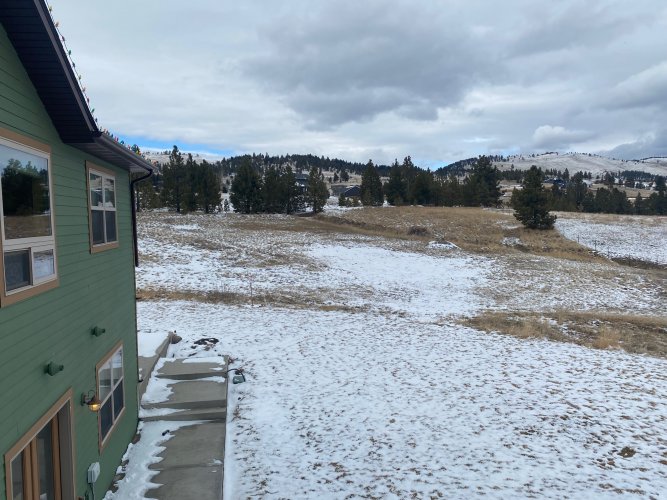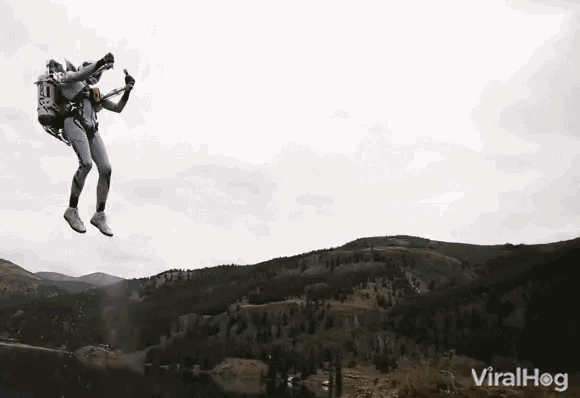Over the last eight years, and more intensively, the last six months, I've hired attorneys to advise me on the intersection of public and private property, explaining where the rights of each start/end/merge, at intersecting property corners. It has been a huge learning process for me; worth the time and money invested to better understand a topic that is of great interest to many of us. My understanding has benefited greatly from this process.
On Friday (March 4th) we will publish the first of three podcast episodes about this intersection, using checkerboard intersections as the scenario that best illustrates these issues. When I engaged the law firm this last summer, I didn't know the upcoming hunting season would result in a real case going to court that serves as a great example for reference, especially now that there is both a criminal and civil case pending.
The first podcast is mostly background for the listeners who are not familiar with the issue to the degree many on this forum are familiar. I try to explain the history of how checkerboard was created, the trends of the last 20-30 years that make this more of an issue, and I try to explain that a lot of hunters don't even consider asking for access to private out of respect for the landowner's time. Many of us write-off the idea of asking for private permission and focus on public lands, showing complete respect for private property rights and in doing so we hope the same respect will be shown for public property rights.
I suspect many who are very familiar won't get too much new information out of the first episode. But, it is necessary to have the foundation for an in depth legal discussion on the next episode. Part 1 also explains my ever-changing perspective on the topic as legal experts give me more and more advice.
Part 2 is the episode I think most will feel is valuable. That will be published on Monday, March 7th. I am joined by the two property law attorneys I've hired to advise me on the topic. We take months worth of work and volumes of cases, and touch on the items pertinent to the intersection of public-private property. We will be doing a third podcast, Part 3, to cover the topics we didn't touch in Part 2 and using the feedback loop from the first two episodes to expand on more topics. If people find it interesting, maybe we will do a fourth episode.
I hope listeners get value out of this project. It has been a lot of time and money, so we have tried to make it as useful as we can.
I think people will see that the absolutism some portray as "the law" when public-private meets, is usually due to the benefits they can achieve by proclaiming this area of law is settled and no further investigation is necessary. The Wyoming case is a perfect example of one party proclaiming the ancient "legal theories" have settled this issue, given they stand to benefit from making that case. Yet, the attorneys in Part 2 make it very clear how impractical those "legal theories" due many court cases, often civil cases with private parties suing each other, disregarding these "legal theories."
For me, I have had my perspectives changed a lot in this process, which is a function of a better understanding the legal theories and a better appreciation for how law changes to reflect the changing society we live in. I suspect my perspectives will expand and change as I continue to get more legal advice.
In addition to the two attorneys we have on the podcast, three other law professors who specialize in property law have been giving advice and meeting with us on Zoom calls. They have provided a lot of great information and I am grateful for their scholarly work and their willingness to lend some additional expertise.
Before we start publishing these podcast episodes, I want to provide this document by Professor Shelby Green of Pace University. Not saying the piece she published is "the law," but she makes a very strong case for a lot of ideas that will likely be used as we go forward in sorting out "the law" where these rights intersect. It will make a very clear case that the "absolutism" some want to claim exists on this topic is far from "settled law."
If you are interested in law, specifically law related to this intersection, I would suggest you read Professor Green's piece published in the Wyoming Law Review in 2014. Link here - https://digitalcommons.pace.edu/lawfaculty/926/
Or, you can download the attachment below.
When these podcast episodes get published, I will post links to each episode on this thread. In the meantime, enjoy some "light reading."
On Friday (March 4th) we will publish the first of three podcast episodes about this intersection, using checkerboard intersections as the scenario that best illustrates these issues. When I engaged the law firm this last summer, I didn't know the upcoming hunting season would result in a real case going to court that serves as a great example for reference, especially now that there is both a criminal and civil case pending.
The first podcast is mostly background for the listeners who are not familiar with the issue to the degree many on this forum are familiar. I try to explain the history of how checkerboard was created, the trends of the last 20-30 years that make this more of an issue, and I try to explain that a lot of hunters don't even consider asking for access to private out of respect for the landowner's time. Many of us write-off the idea of asking for private permission and focus on public lands, showing complete respect for private property rights and in doing so we hope the same respect will be shown for public property rights.
I suspect many who are very familiar won't get too much new information out of the first episode. But, it is necessary to have the foundation for an in depth legal discussion on the next episode. Part 1 also explains my ever-changing perspective on the topic as legal experts give me more and more advice.
Part 2 is the episode I think most will feel is valuable. That will be published on Monday, March 7th. I am joined by the two property law attorneys I've hired to advise me on the topic. We take months worth of work and volumes of cases, and touch on the items pertinent to the intersection of public-private property. We will be doing a third podcast, Part 3, to cover the topics we didn't touch in Part 2 and using the feedback loop from the first two episodes to expand on more topics. If people find it interesting, maybe we will do a fourth episode.
I hope listeners get value out of this project. It has been a lot of time and money, so we have tried to make it as useful as we can.
I think people will see that the absolutism some portray as "the law" when public-private meets, is usually due to the benefits they can achieve by proclaiming this area of law is settled and no further investigation is necessary. The Wyoming case is a perfect example of one party proclaiming the ancient "legal theories" have settled this issue, given they stand to benefit from making that case. Yet, the attorneys in Part 2 make it very clear how impractical those "legal theories" due many court cases, often civil cases with private parties suing each other, disregarding these "legal theories."
For me, I have had my perspectives changed a lot in this process, which is a function of a better understanding the legal theories and a better appreciation for how law changes to reflect the changing society we live in. I suspect my perspectives will expand and change as I continue to get more legal advice.
In addition to the two attorneys we have on the podcast, three other law professors who specialize in property law have been giving advice and meeting with us on Zoom calls. They have provided a lot of great information and I am grateful for their scholarly work and their willingness to lend some additional expertise.
Before we start publishing these podcast episodes, I want to provide this document by Professor Shelby Green of Pace University. Not saying the piece she published is "the law," but she makes a very strong case for a lot of ideas that will likely be used as we go forward in sorting out "the law" where these rights intersect. It will make a very clear case that the "absolutism" some want to claim exists on this topic is far from "settled law."
If you are interested in law, specifically law related to this intersection, I would suggest you read Professor Green's piece published in the Wyoming Law Review in 2014. Link here - https://digitalcommons.pace.edu/lawfaculty/926/
Or, you can download the attachment below.
When these podcast episodes get published, I will post links to each episode on this thread. In the meantime, enjoy some "light reading."








